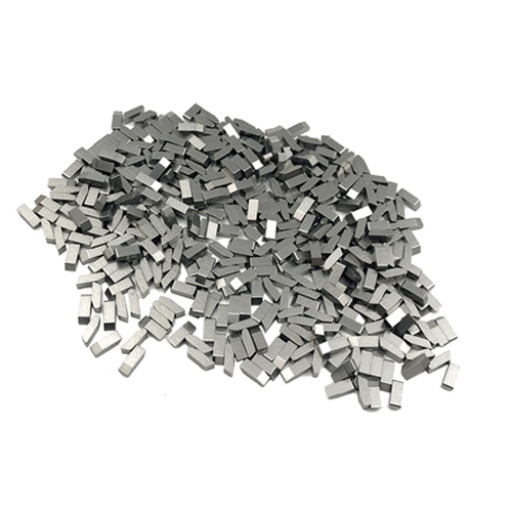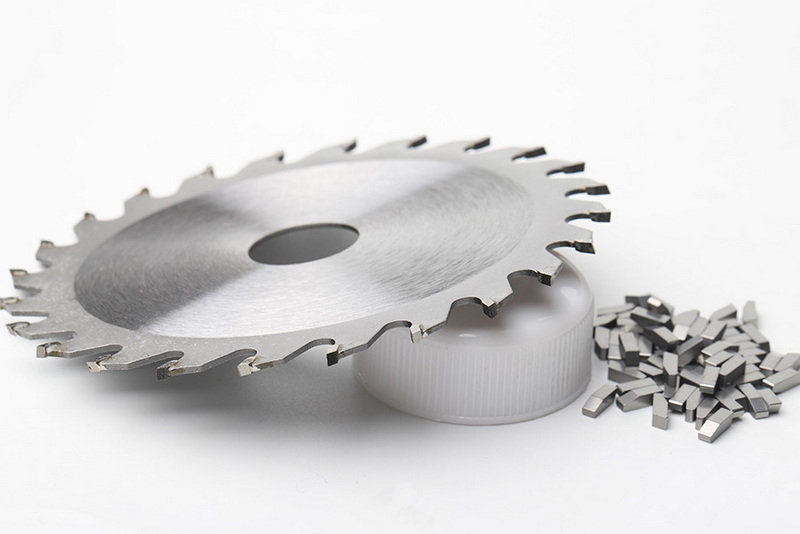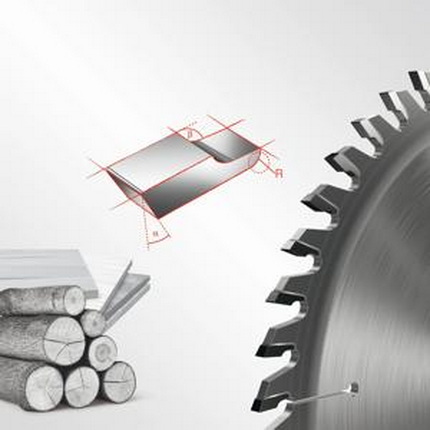Content Menu
● Introduction to Tungsten Carbide
>> Properties of Tungsten Carbide
● Comparison with Other Strong Metals
>> Tungsten
>> Chromium
>> Titanium
● Applications of Tungsten Carbide
● Additional Properties and Uses
>> Corrosion Resistance
>> Magnetic Properties
>> Environmental Impact
>> Recycling
● Comparison with Other Hard Materials
>> Diamond
>> Silicon Carbide
● Is Tungsten Carbide the Strongest Metal?
● Challenges and Future Developments
● Conclusion
● FAQ
>> 1. What is Tungsten Carbide Used For?
>> 2. Is Tungsten Carbide Stronger Than Tungsten?
>> 3. How is Tungsten Carbide Made?
>> 4. What are the Key Properties of Tungsten Carbide?
>> 5. Is Tungsten Carbide Conductive?
● Citations:
Tungsten carbide is renowned for its exceptional hardness and durability, often leading to the question: is it the strongest metal in the world? To answer this, we need to delve into the properties and applications of tungsten carbide and compare it with other strong metals.

Introduction to Tungsten Carbide
Tungsten carbide is a compound made from tungsten and carbon, known for its high hardness and resistance to wear and corrosion. It is widely used in cutting tools, abrasives, and other industrial applications where durability is crucial.
Properties of Tungsten Carbide
- Hardness: Tungsten carbide has a Mohs hardness of 9 to 9.5, making it one of the hardest materials known, second only to diamond.
- Density: It has a density of about 15.6 to 15.8 g/cm³, which is less than pure tungsten but still quite high compared to most metals.
- Compressive Strength: Tungsten carbide has a compressive strength of approximately 2683 MPa, which is significantly higher than most metals and alloys.
- Thermal Properties: It has a high melting point of about 2870°C and good thermal conductivity, making it suitable for high-temperature applications.
Comparison with Other Strong Metals
Tungsten
Tungsten is one of the strongest naturally occurring metals, with a tensile strength of up to 1725 MPa and the highest melting point among all metals at 3410°C. It is used in high-temperature applications such as rocket nozzles and light bulb filaments.
Chromium
Chromium is known for its hardness and corrosion resistance, often used in stainless steel alloys. It has a tensile strength of around 418 MPa but is highly brittle.
Titanium
Titanium is strong and lightweight, with a tensile strength of up to 1200 MPa in alloys. It is widely used in aerospace due to its high strength-to-weight ratio.
Applications of Tungsten Carbide
Tungsten carbide is primarily used in:
- Cutting Tools: Due to its hardness, it is ideal for cutting tools that need to maintain their edge over time.
- Abrasive Materials: Its wear resistance makes it suitable for grinding and polishing applications.
- Armor-Piercing Ammunition: The hardness and density of tungsten carbide make it effective for penetrating armor.
- Jewelry: Tungsten carbide is also used in jewelry due to its durability and scratch resistance.

Additional Properties and Uses
Corrosion Resistance
Tungsten carbide exhibits good corrosion resistance, which is beneficial in environments where chemical exposure is a concern. However, its corrosion resistance can vary depending on the binder material used in its production.
Magnetic Properties
Tungsten carbide is generally non-magnetic, which can be advantageous in applications where magnetic interference needs to be minimized.
Environmental Impact
The production of tungsten carbide involves tungsten, which is often mined in conflict zones. Efforts are being made to ensure responsible sourcing and reduce environmental impact.
Recycling
Tungsten carbide can be recycled, which helps reduce waste and conserve resources. Recycling involves collecting and processing used tungsten carbide products to extract tungsten and other valuable materials.
Comparison with Other Hard Materials
Diamond
Diamond is the hardest natural material, with a Mohs hardness of 10. It is used in cutting tools and jewelry but is more expensive than tungsten carbide.
Silicon Carbide
Silicon carbide is another hard material used in abrasives and high-temperature applications. It has a lower density than tungsten carbide but is more brittle.
Is Tungsten Carbide the Strongest Metal?
While tungsten carbide is incredibly hard and durable, its tensile strength is relatively low compared to some metals like tungsten or titanium. However, its compressive strength and resistance to wear make it one of the strongest materials in specific applications.
Challenges and Future Developments
Despite its advantages, tungsten carbide faces challenges such as high production costs and environmental concerns related to tungsten mining. Research is ongoing to improve manufacturing processes and explore alternative materials.
Conclusion
Tungsten carbide is not the strongest metal in terms of tensile strength, but it is one of the hardest and most durable materials available. Its unique properties make it invaluable in industrial applications where wear resistance and hardness are critical.

FAQ
1. What is Tungsten Carbide Used For?
Tungsten carbide is primarily used in cutting tools, abrasives, armor-piercing ammunition, and jewelry due to its exceptional hardness and wear resistance.
2. Is Tungsten Carbide Stronger Than Tungsten?
Tungsten carbide is generally stronger than pure tungsten in terms of hardness and compressive strength, but tungsten has a higher tensile strength.
3. How is Tungsten Carbide Made?
Tungsten carbide is made by heating tungsten powder with carbon at high temperatures (1400-1600°C) and then sintering it with a binder like cobalt.
4. What are the Key Properties of Tungsten Carbide?
Key properties include high hardness (Mohs 9-9.5), high compressive strength (2683 MPa), and good thermal conductivity.
5. Is Tungsten Carbide Conductive?
Tungsten carbide is not a good electrical conductor but has good thermal conductivity.
Citations:
[1] https://cncpartsxtj.com/cnc-materials/difference-tungsten-and-tungsten-carbide/
[2] https://gtllab.org/10-most-strongest-metals-on-the-earth-by-metal-testing-lab-in-delhi-india/
[3] https://www.linde-amt.com/resource-library/articles/tungsten-carbide
[4] https://en.wikipedia.org/wiki/Tungsten_carbide
[5] https://byjus.com/physics/metal/
[6] https://www.linkedin.com/pulse/what-strongest-metals-order-tuofa-technology-co-ltd--tbfqc
[7] https://shop.machinemfg.com/tungsten-vs-tungsten-carbide-key-differences/
[8] https://passionblade.com/is-tungsten-carbide-stronger-than-steel/
[9] https://carbideprocessors.com/pages/carbide-parts/tungsten-carbide-properties.html
[10] https://shop.machinemfg.com/understanding-strong-metals-properties-comparisons-and-applications/
[11] https://tampasteel.com/what-are-the-strongest-metals/
[12] https://yijinsolution.com/news-blog/10-strongest-metals-in-the-world-properties-and-usage/
[13] https://wisconsinmetaltech.com/10-strongest-metals-in-the-world/
[14] https://www.meadmetals.com/blog/what-are-the-strongest-metals
[15] https://www.earthdate.org/episodes/worlds-strongest-metal
[16] https://www.imetra.com/tungsten-carbide-material-properties/
[17] https://www.aemmetal.com/news/tungsten-carbide-vs-titanium.html
[18] https://science.howstuffworks.com/environmental/earth/geology/titanium.htm
[19] https://www.azom.com/properties.aspx?ArticleID=1203
[20] https://industrialmetalservice.com/metal-university/differentiating-tungsten-carbide-vs-steel-and-other-tooling/
[21] https://en.wikipedia.org/wiki/Tungsten
[22] https://www.vedantu.com/chemistry/tungsten-carbide
[23] https://www.tungco.com/insights/blog/why-use-tungsten-carbide-over-other-metals/
[24] https://www.thyssenkrupp-materials.co.uk/strongest-metals
[25] https://stock.adobe.com/search?k=tungsten+carbide
[26] https://www.istockphoto.com/photos/tungsten-carbide
[27] https://www.freepik.com/free-photos-vectors/tungsten
[28] https://www.shutterstock.com/search/tungsten
[29] https://www.azom.com/article.aspx?ArticleID=1203
[30] https://stock.adobe.com/search?k=carbide
[31] https://cen.acs.org/materials/Chemistry-Pictures-Tungsten-carbide-slice/103/web/2025/02
[32] https://periodictable.com/Elements/074/pictures.html
[33] https://www.aemmetal.com/news/tungsten-vs-tungsten-carbide-guide.html
[34] https://www.istockphoto.com/photos/tungsten-carbide-drill-bits
[35] https://www.kennametal.com/us/en/products/carbide-wear-parts/fluid-handling-and-flow-control/separation-solutions-for-centrifuge-machines/tungsten-carbide-materials.html
[36] https://www.shutterstock.com/search/tungsten-carbide
[37] https://www.gettyimages.in/photos/tungsten
[38] https://www.freepik.com/free-photos-vectors/tungsten-carbide
[39] https://www.reddit.com/r/coolguides/comments/rspe6e/10_strongest_metals_on_earth_and_their_uses/
[40] https://shop.machinemfg.com/the-strongest-metals-properties-applications-and-comparisons/
[41] https://www.visualcapitalist.com/prove-your-metal-top-10-strongest-metals-on-earth/
[42] https://industrialmetalservice.com/metal-university/what-metal-has-the-highest-tensile-strength/
[43] https://www.universalmetals.com/glossary/properties/metal-strength/
[44] https://bortec-group.com/glossary/hardest-metals/
[45] https://www.tungco.com/insights/blog/5-tungsten-carbide-applications/
[46] http://www.tungsten-carbide.com.cn
[47] https://www.alamy.com/stock-photo/tungsten-carbide.html
[48] https://create.vista.com/photos/tungsten-carbide/
[49] https://www.vedantu.com/chemistry/strongest-metals
















